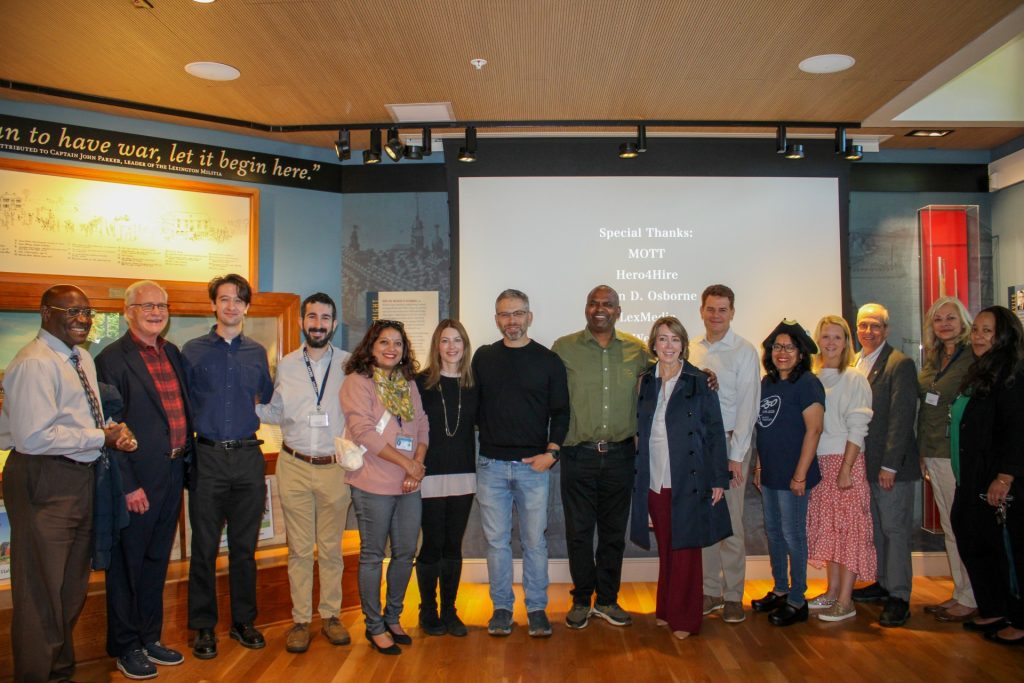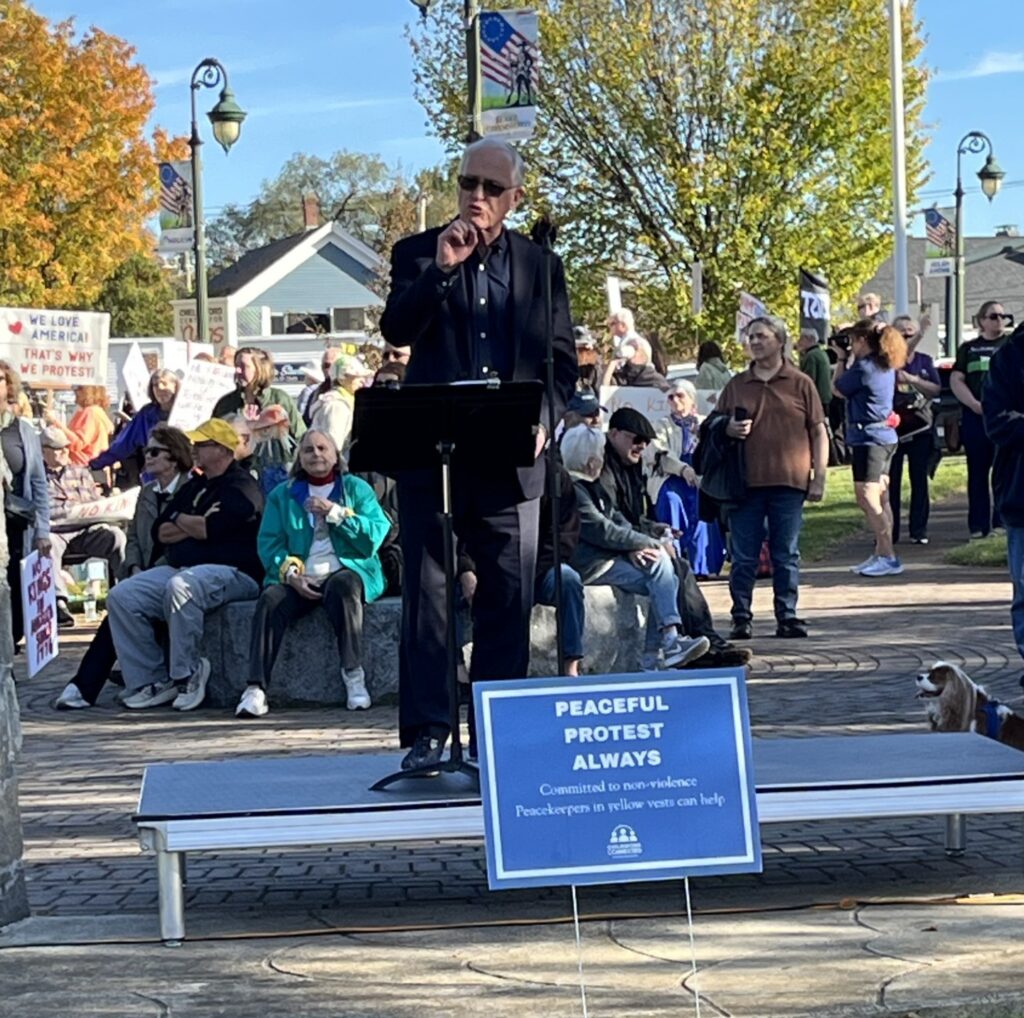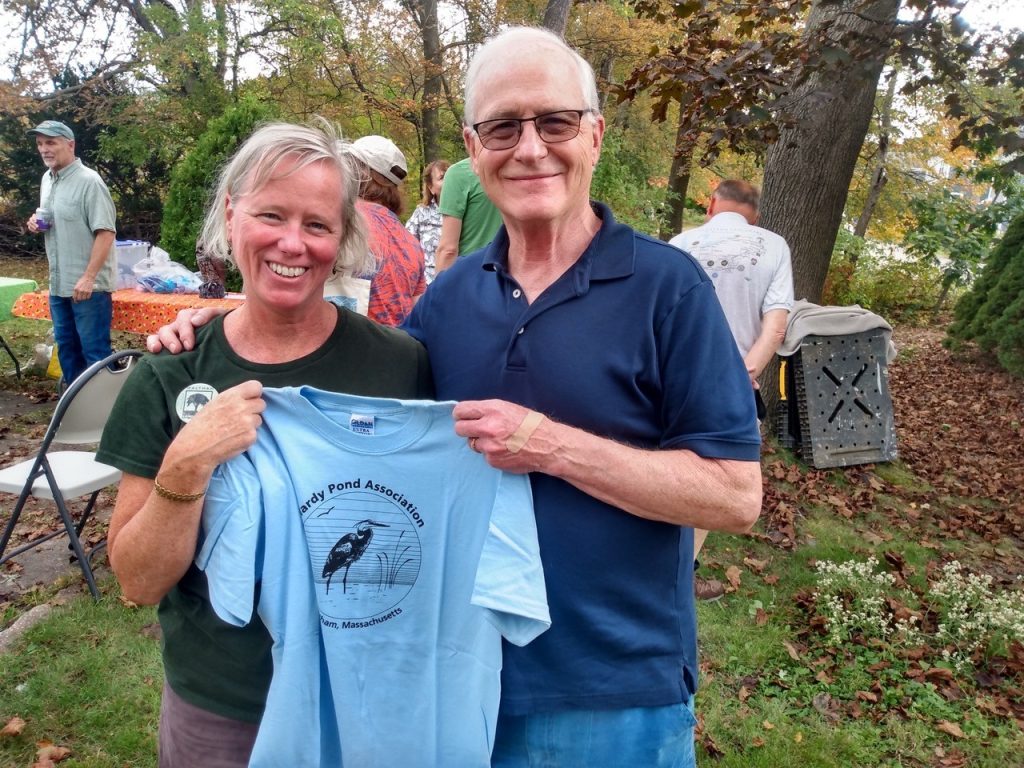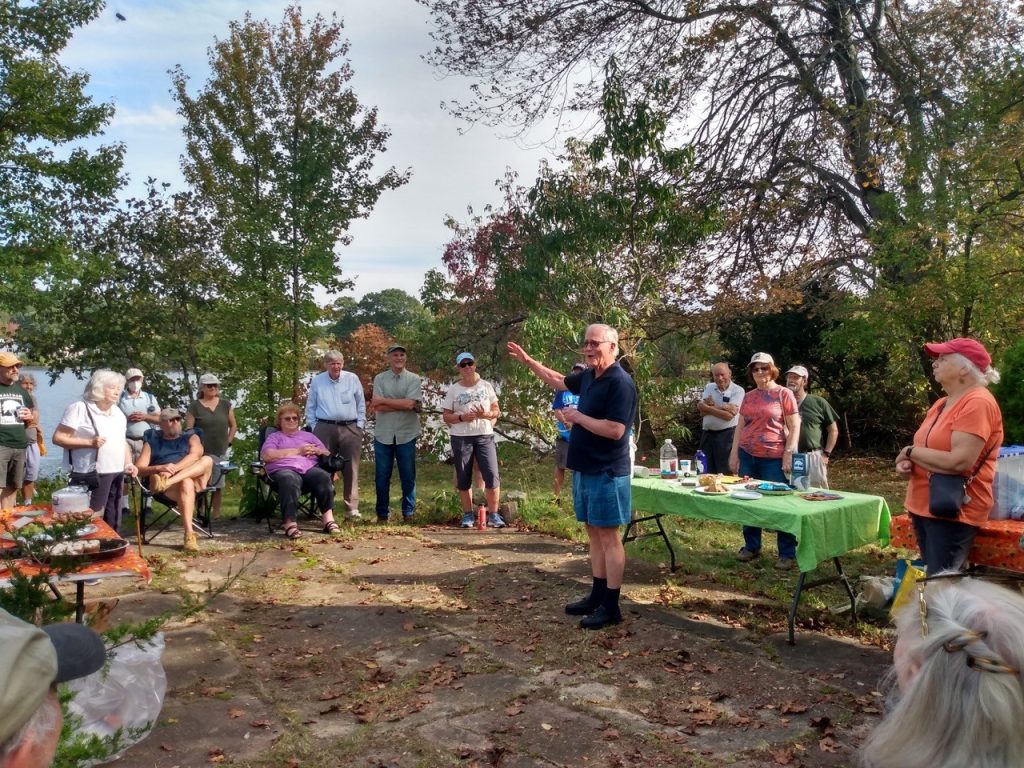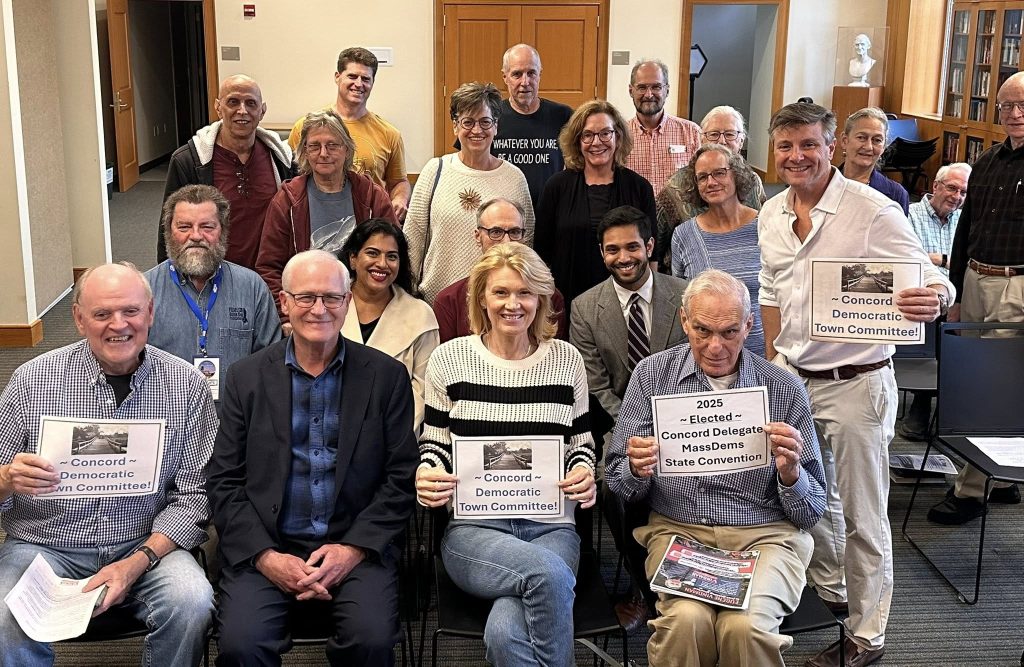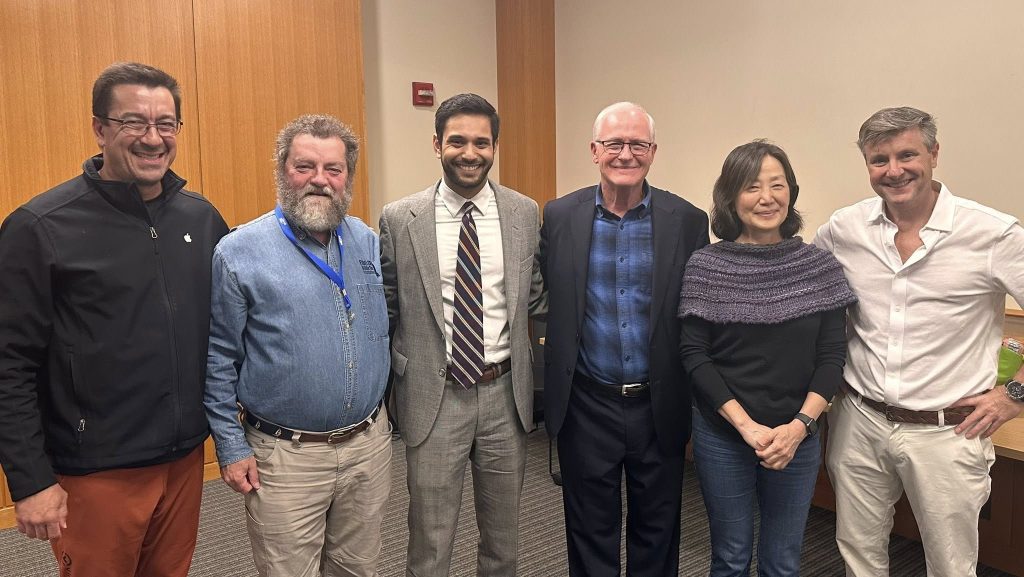Posts
Let the super-rich super-pollute?
Let’s keep pushing on solar.
Chelmsford says No Kings!
Barrett, local organizers rally against Hanscom jet hangars
A coalition of community groups, legislators, and concerned citizens rallied at the State House on Tuesday against building multiple private jet hangars at Hanscom Field. They urged Massport to reject a proposal “to house private jets that would let a handful of super-rich people super-pollute,” in the words of State Senator Mike Barrett.
“No way can you put in a bunch of garages for private jets and still claim ever again to be concerned about climate. This is it. This is the inflection point for Massport,” said Barrett, who represents the four towns adjacent to Hanscom. “In seriously entertaining this proposal, Massport is on the verge of a terrible two-fer: aiding and abetting the warming of the planet and pandering to the concentration of private wealth.”
Thanks to the efforts of a statewide coalition, Stop Private Jet Expansion at Hanscom or Anywhere (SPJE), the State House rally drew residents from across Massachusetts. In addition to Barrett, speakers included State Rep. Carmine Gentile, Chuck Collins of the Institute for Policy Studies, Claire Karl Müller of Mass Power Forward, and Alex Chatfield and Lara Sullivan of SPJE.
Photo credit: Marilyn Humphries
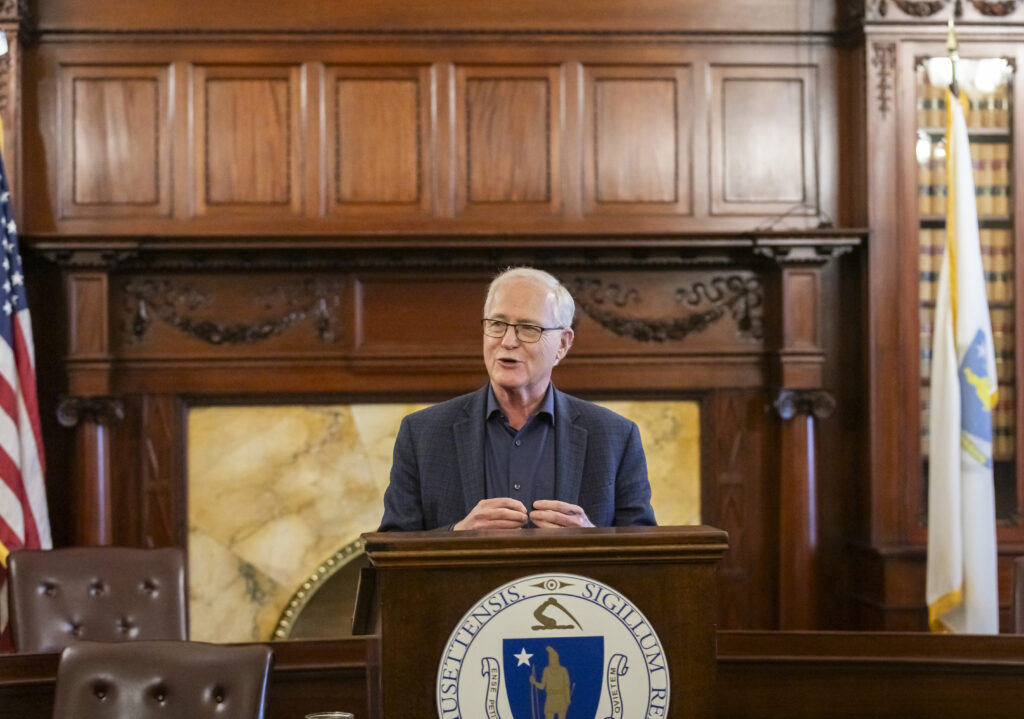
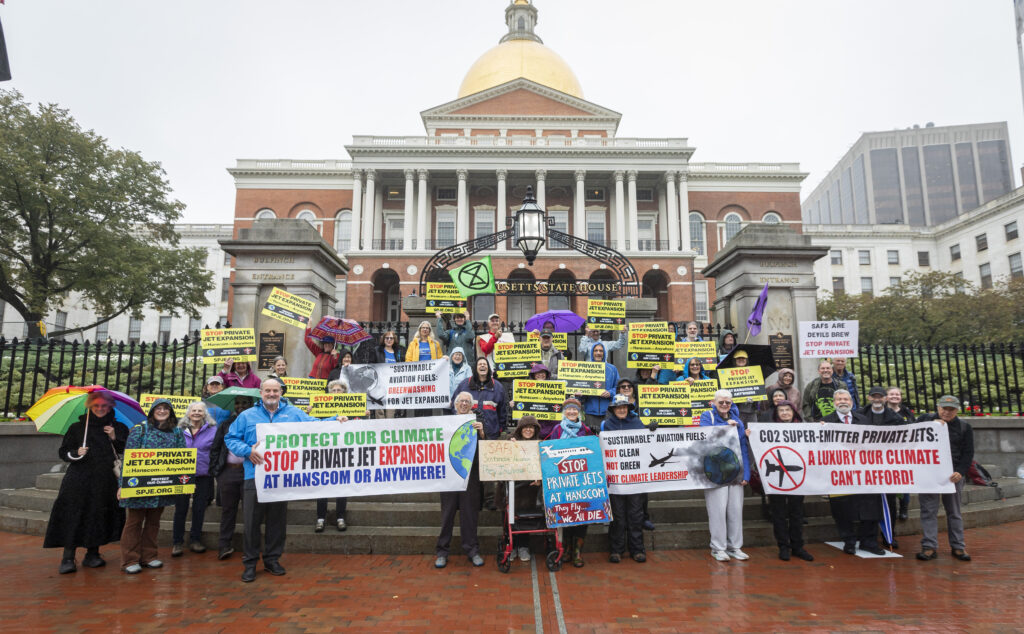
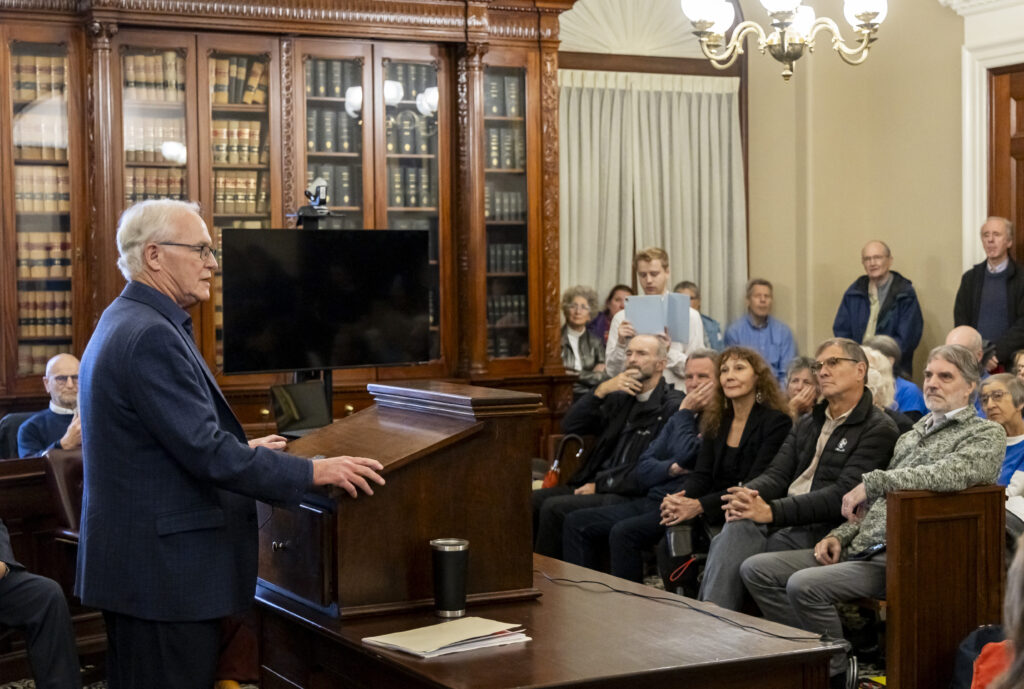
Chair Van Nostrand put the “public” back into the Department of Public Utilities
As Chair, Jamie Van Nostrand put the “public” back into the Department of Public Utilities. He put ratepayers and household budgets first and positioned Massachusetts to continue the transition off fossil fuels. He’s on to his next adventure but his shadow is long and his achievements, indelible. A number of us gathered recently to honor him and express our profound thanks.
From left to right: Garrett Casey, Elizabeth Van Nostrand, Jamie Van Nostrand, marvelous host Marilyn Ray Smith, Ania Camargo, and Nathan Phillips. I think I see Mark Dyen’s leg.
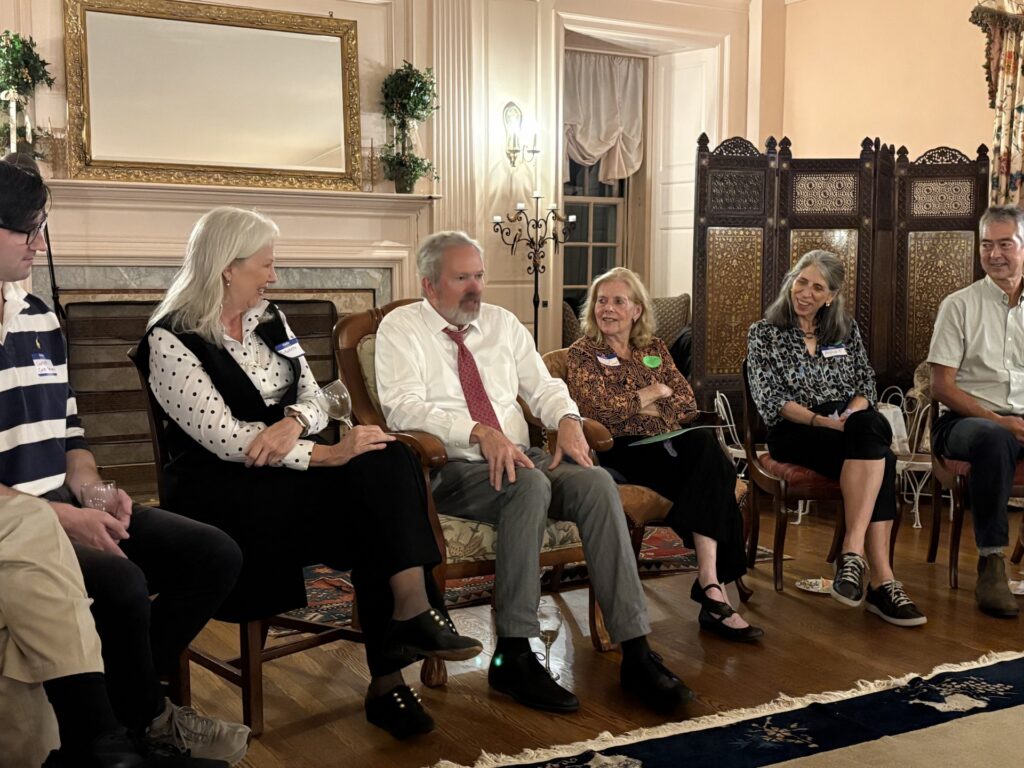
Waltham Land Trust celebrates the protection of Hardy Pond
Just passed in the State Senate: new guardrails to limit the collection and sale of your personal data.
New exhibit honors Black Patriots of Lexington
Just unveiled in Lexington: a new exhibit featuring three Black Patriots who fought in the American Revolution. The animated videos tell the stories of Prince Estabrook and Eli Burdoo, who each fought in the Battle of Lexington, and Pompey Fiske, who witnessed the battle and later enlisted in the Continental Army. Shoutout to Sean Osborne and the Lexington Visitors Center for bringing their stories to life.
Credit to the Town of Lexington for the photos.
